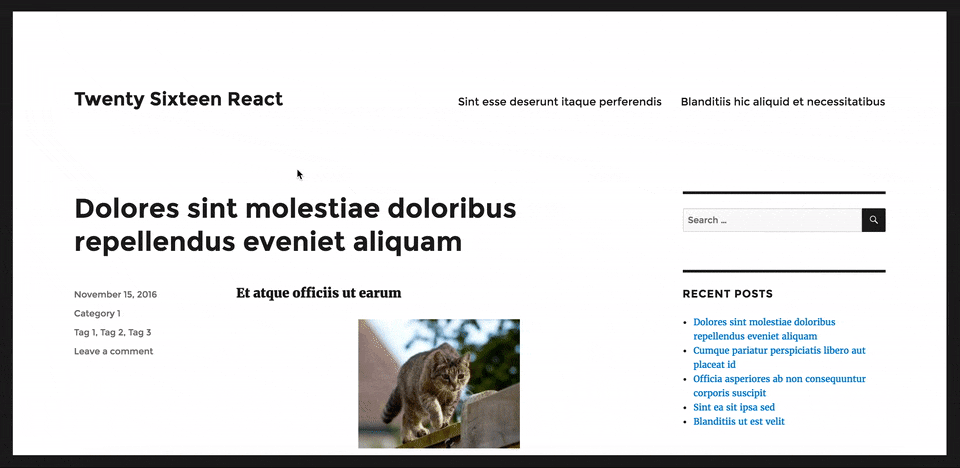WAMU.org launches, powered by React.js and the WordPress REST API
Yesterday, Washington, D.C. NPR regional affiliate WAMU released a fully reimagined website in partnership with 10up. Designed to elegantly present written and audio content, we engineered a cutting-edge WordPress implementation that leverages React.js and the WordPress REST API to create an immersive single-page app experience. Visitors can listen to audio content using the player bar pinned to the bottom of the screen, without interruption, as they browse the site on a phone, tablet, or desktop browser.

Read More on WAMU.org launches, powered by React.js and the WordPress REST API





